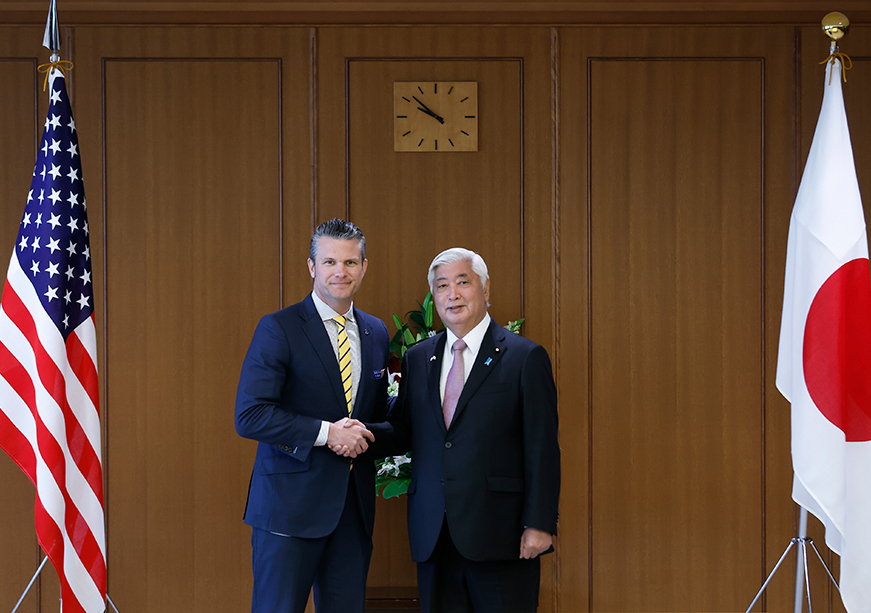.png)
Image Source: Samvada World
Tibet captured global attention following World War II when the People's Republic of China annexed it in 1950. However, in the past two decades, Tibet's struggle for autonomy has largely faded from the forefront of international consciousness, becoming a footnote among the freedom movements of the 21st century.
Tibet captured global attention following World War II when the People's Republic of China annexed it in 1950.
Aside from Nepal and India, which are home to the majority of the Buddhist Tibetan refugees, it is the United States (US), which has arguably played a more significant role in keeping the Tibetan movement alive in the international arena. Most recently, on 12 July 2024, US President Joe Biden signed the ‘ Promoting a Resolution to the Tibet-China Dispute Act’, also dubbed as the Resolve Tibet Act.
Background
Since the invasion of Tibet by China in October 1950, the region of Tibet has been under Chinese control. For a brief period, a settlement was reached between the Tibetan and Chinese governments, through the Seventeen-Point Agreement, which was signed in 1951. However, due to significant violations of multiple undertakings of the agreement as well as forced reforms in addition to propaganda campaigns against Tibetan culture and history, the Tibetan government legally repudiated the agreement in March 1959. During the same period, there was a short-lived armed revolt by the Tibetan population, in the aftermath of which the 14th and current Dalai Lama fled from Lhasa and took shelter in Dharamshala, India.
Since the invasion of Tibet by China in October 1950, the region of Tibet has been under Chinese control.
Today, Tibet is governed as an autonomous region of China through the administration of the Tibet Autonomous Region (TAR) and 12 Tibetan autonomous prefectures or counties in the nearby provinces of Sichuan, Qinghai, Gansu, and Yunnan.
US and Tibet
Historically, the US’s policy towards Tibet has fluctuated drastically depending on its relations with China and its geopolitical outlook. In the 1950s and 60s, it provided military and financial aid to Tibetan guerrilla forces. In the 70s and 80s, however, we witnessed a switch where the US had almost zero contact with the Tibetan government in exile as it was trying to strengthen its relations with China. However, from 2000 onwards, it began to refocus its attention on Tibet with the Tibet Policy Act (TPA) of 2002, a core legislation which still acts as a guiding US policy towards Tibet, which states ‘It is the policy of the United States to support economic development, cultural preservation, health care, and education and environmental sustainability for Tibetans inside Tibet’. The enactment further went on to establish the position of Special Coordinator for Tibetan Issues in the US State Department, talk about the establishment of a US Branch Office in Lhasa and encourage dialogue between China and the Dalai Lama, among other things.
Fast-forward to 2018, the US came out with the Reciprocal Access to Tibet Act 2018, which directed the Department of State to report to Congress regarding the level of access Chinese authorities granted U.S. tourists, journalists and diplomats to Tibetan areas in China.
The 2020 Tibetan Policy and Support Act (TSPA) stipulated that the question of the succession of Tibetan Buddhist leaders, including the Dalai Lama, be decided within the Tibetan Buddhist community, without any interference from the Chinese government.
The 2020 Tibetan Policy and Support Act (TSPA) stipulated that the question of the succession of Tibetan Buddhist leaders, including the Dalai Lama, be decided within the Tibetan Buddhist community, without any interference from the Chinese government. The TSPA also imposes sanctions against Chinese officials who engage in said interferences.
Resolve Tibet Act
The Promoting a Resolution to the Tibet-China Dispute Act was introduced as a bipartisan bill by US Senators Jeff Merkley and Todd Young. The Act promotes an unconditional dialogue between the Dalai Lama and the People’s Republic of China (PRC) to seek a settlement and further enhance the US’s overall support for Tibet.
Key enactments:
-
The definition of Tibet: While the Act does not necessarily change Washington’s policy of viewing Tibet as a part of China, it lays down a statutory definition of Tibet that encompasses not only the Tibet Autonomous Region (TAR) but also Tibetan areas within the Chinese provinces of Qinghai, Sichuan, Gansu, and Yunnan. Unlike the Chinese government's typical reference to Tibet, which is limited to the TAR, this broader definition aligns with the regions traditionally recognised as Tibet.
-
Self-determination: Section 2 of the Act underlines the ‘Right of Self-Determination’ of the Tibetan people as laid down in the International Covenant on Civil and Political Rights and International Covenant on Economic, Social and Cultural Rights. The right to self-determination is a core principle of international law which provides that every person has the right to self-determination. By the said right, people can freely determine their own political status and freely pursue their economic, social, and cultural development. This has been reinforced by the International Court of Justice in the Wall case (2004), in which it states ‘the principle of self-determination of peoples has been enshrined in the United Nations Charter and reaffirmed by the General Assembly in resolution 2625 (XXV), under which “Every State has the duty to refrain from any forcible action which deprives peoples referred to [in that resolution] … of their right to self-determination”. The Act may serve as a catalyst which brings Tibet back into the attention and purview of international law.
-
Tackling Chinese disinformation: The Act amends the TPA by expanding the duties of the Office of the US Special Coordinator for Tibetan Issues to tackle Chinese disinformation about Tibet’s history, culture, people, and institutions, including that of the Dalai Lama. This comes amidst a global narrative push by the Chinese government Tibet has “always" been a part of China. A possible reason behind this is to construct a narrative that gives them a right to be in Tibet and that justifies China's record since its takeover in the 1950s. Thus, delegitimise Tibetan nationalism and any question of independence within the international framework.
Impact
The Resolve Tibet Act, enacted following a high-level US delegation’s meeting with the Dalai Lama in Dharamsala in June 2024, marks another chapter in America's engagement with the Tibet issue, potentially reinvigorating international attention on the region. By emphasising the right to self-determination and challenging China's narrative, the Act raises intriguing questions about Tibet's status in international law. This legislation could serve as a catalyst for bringing Tibet's case before international legal forums, opening new avenues for discourse. However, the practical impact remains uncertain, given China's firm stance and global influence. The Act's effectiveness in opening doors for Tibet in international law will depend on diplomatic manoeuvring, support from other nations, and the complex dynamics of US-China relations. As Tibet remains caught between shifting geopolitical priorities of nations, as with any geopolitical dispute, it is crucial to remember the ongoing toll on the Tibetan Buddhist population since the 1950s.
Udayvir Ahuja is a Programme Coordinator for the Strategic Studies Programme at the Observer Research Foundation
The views expressed above belong to the author(s). ORF research and analyses now available on Telegram! Click here to access our curated content — blogs, longforms and interviews.



.png)
 PREV
PREV


